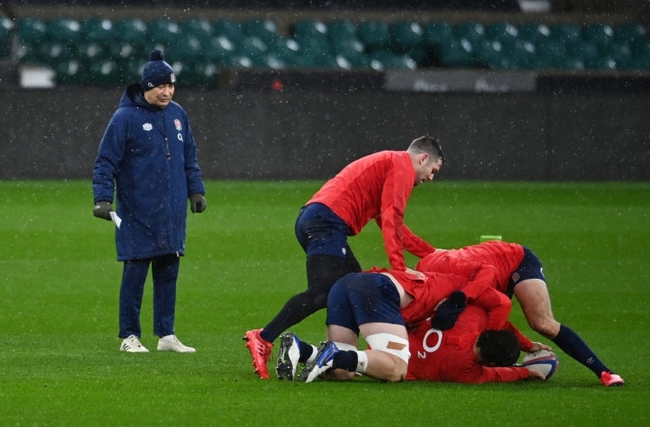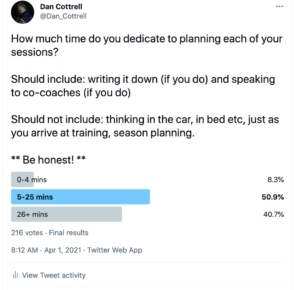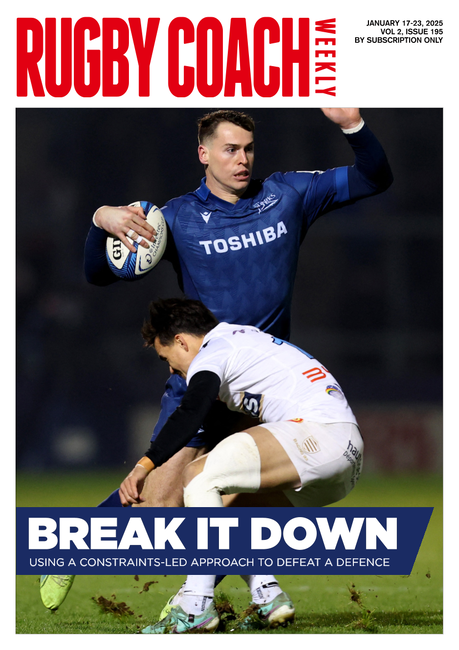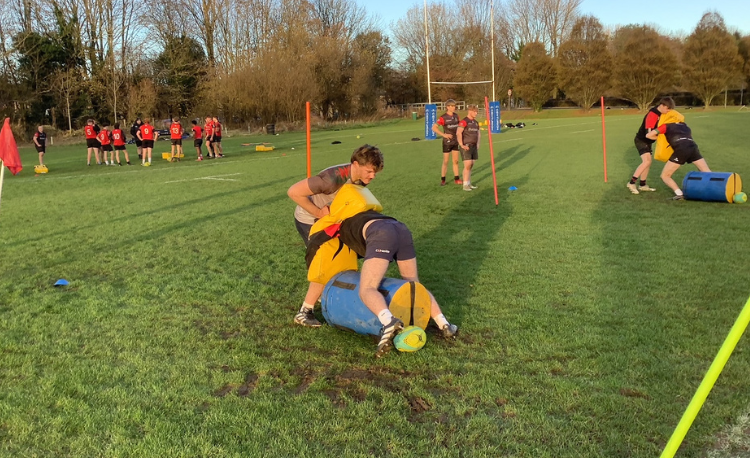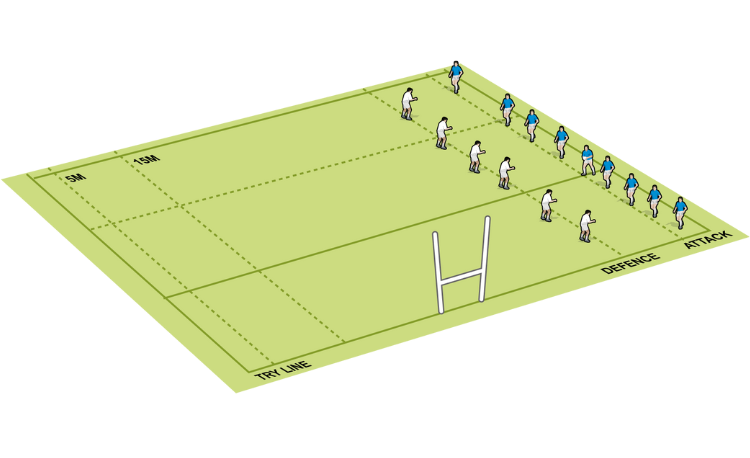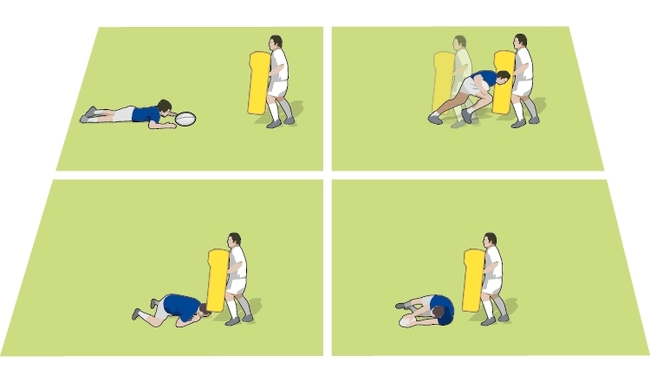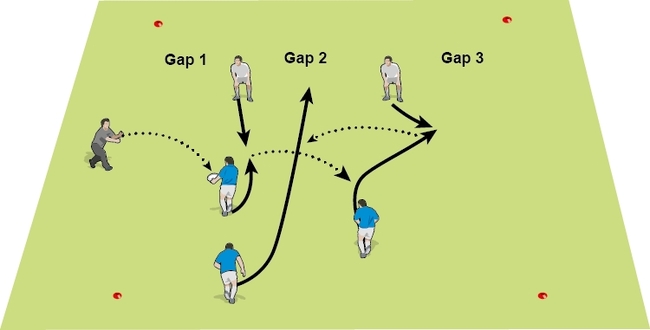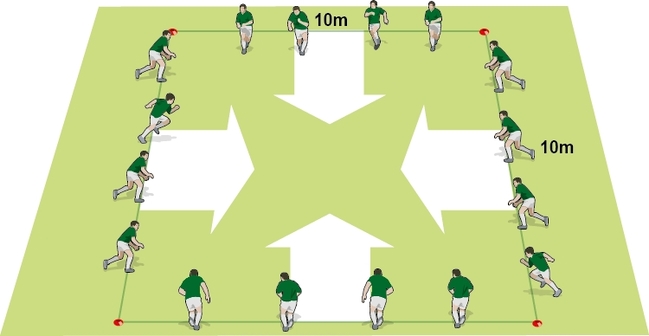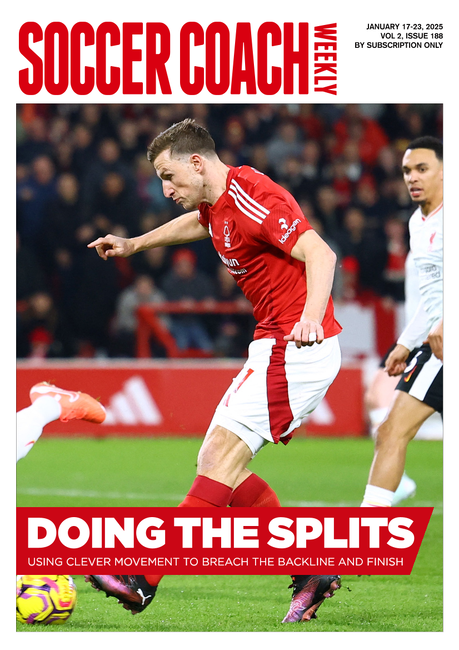Emergency sessions
OLLIE TODD, head of rugby at Box Hill School, outlines three games you can set up if you suddenly find yourself having to run or modify one at short notice.
Rugby, as we all know, is a wonderfully chaotic sport for all shapes, sizes, ages and abilities.
I have often been asked to take a session with a last-minute major change – this is the nature of the job.
Imagine a scenario where the numbers for an U15s session are depleted from 25 to just 14 because of a geography field-trip, missing from the original timetable.
The plan I had now goes out the window and the session begins on the back foot.
To cope with this, I use a framework of small-sided games as a foundation to build a session. They allow me to coach on the fly, adapt and disguise any lack of organisation surrounding that change.
Here are a few tips to help build the framework, with some basic adaptations...
GAME 1 - just play!
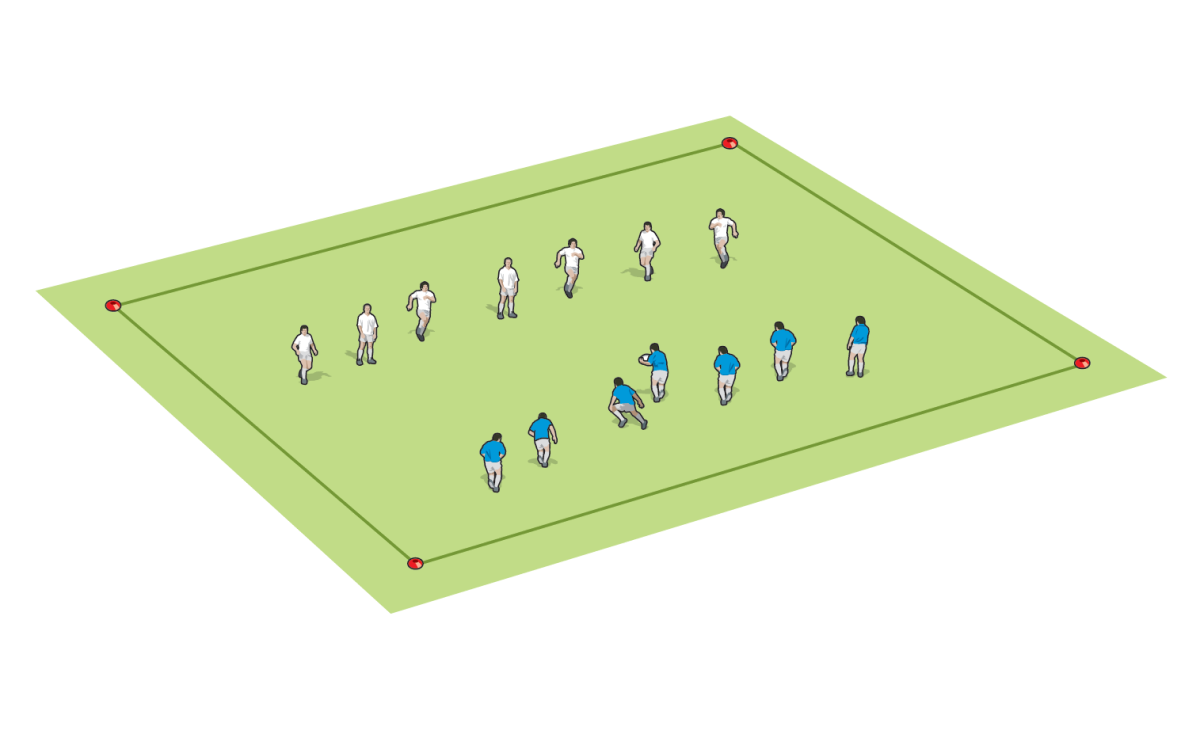
Stock regression (to include weaker players)
Magic men game
Related Files
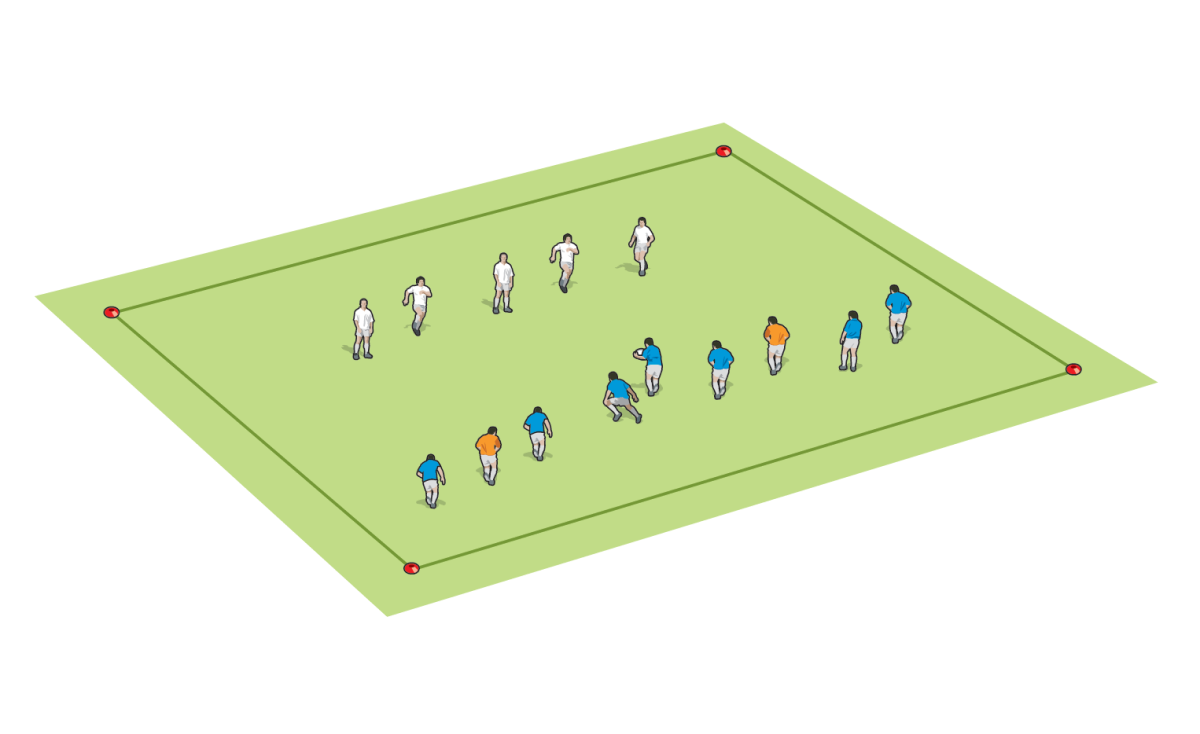
Progression (to challenge better players)
Coach holds two balls (not illustrated) - this keeps the game moving faster, reduces the time discussing whose ball it is
GAME 2 - Up, down, left, right
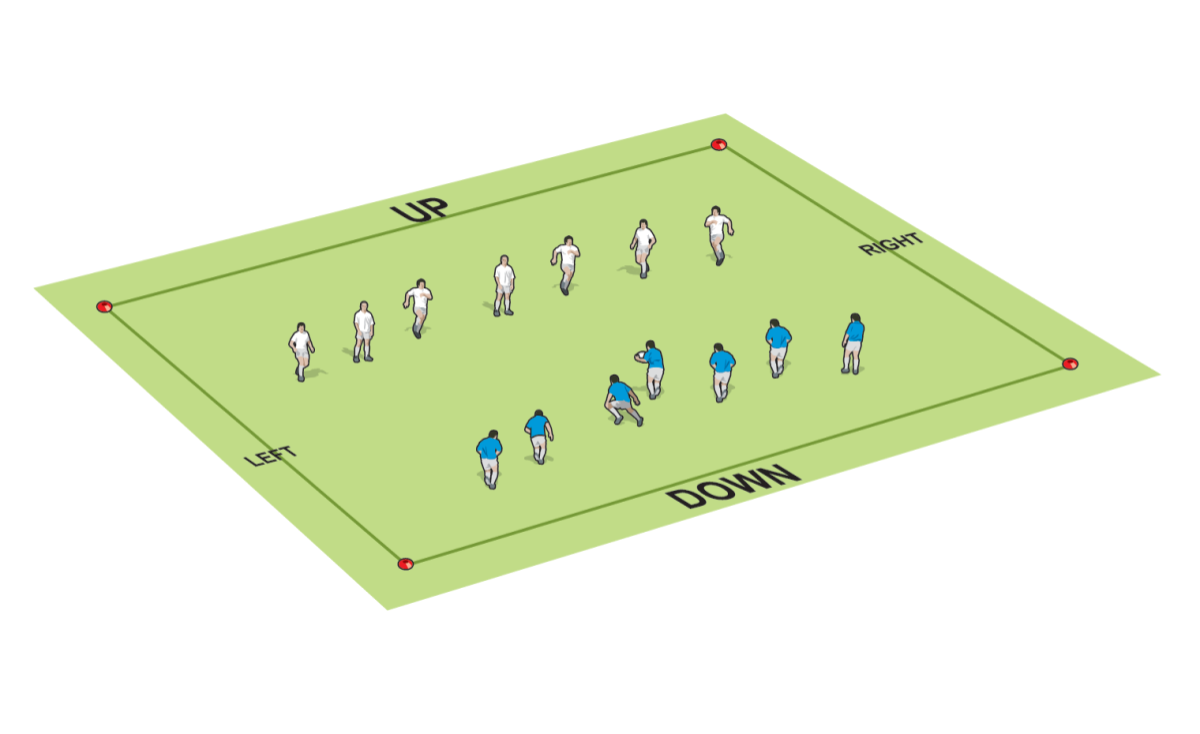
Stock regression (to include weaker players)
Outline the direction changes ahead of time to allow players the opportunity to work it out before the rule comes into effect. Reward those that think quickly but lack the confidence to tell others
Progression (to challenge better players)
Get the players thinking. Change the names of the sides of the pitch to North, East, South, West or A, B, C, D. Rotate the attack clockwise 180 degrees
GAME 3 - Three-team game
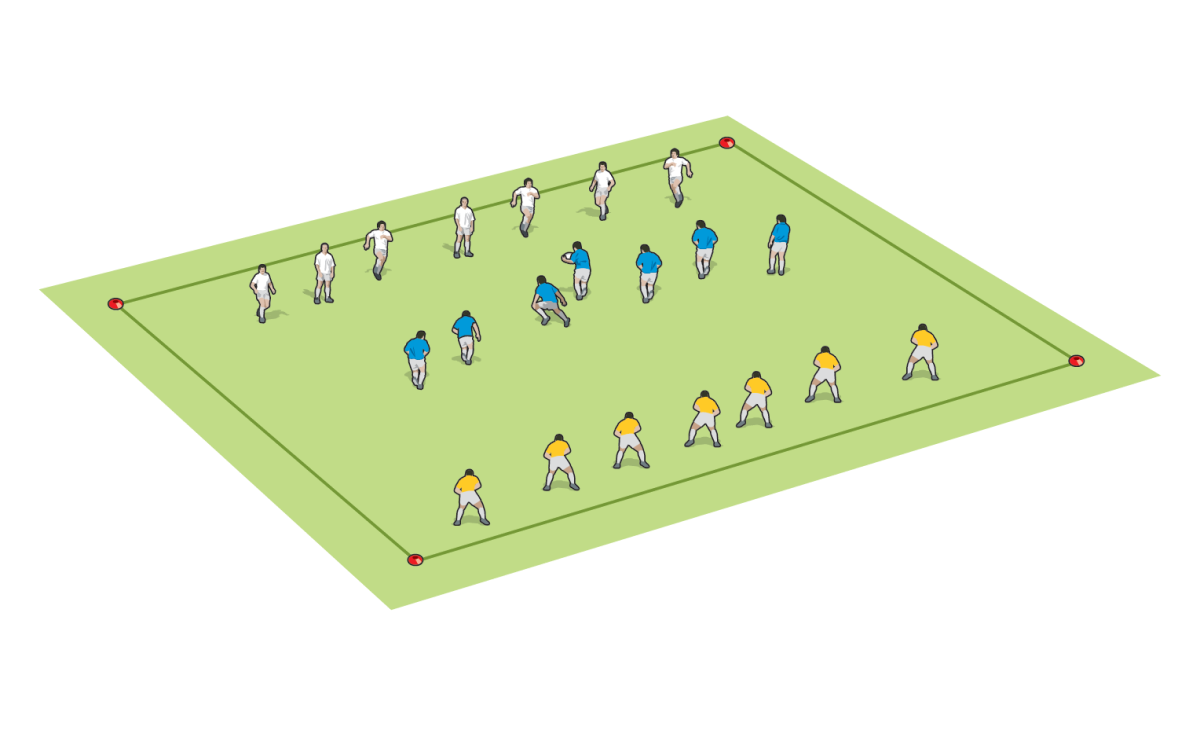
Stock regression (to include weaker players)
I use lax refereeing for weaker players here to afford them more opportunity to play on after a knock-on or forward pass. Process rewards are key, as is a little chat afterwards to highlight this once the intensity has lowered
Progression (to challenge better players)
Target setting can be made game-situation-specific - for example, three minutes to score two tries to win the game AND three minutes to defend the line to win the game
These games are ones that I refer to regularly. The games themselves are not coaching, but the conditions added or changed to challenge players begin to test them on a single metric related to the original session plan.
The players tend to manage themselves so during the activity I can set up the next one, with one eye on what’s going on, of course.
Once the game has wound down to a conclusion, it would have highlighted the next area to work on, either in a closed drill or a full, open game.
As the players become more familiar with the games and what they are called, there is even less set-up time and sessions can flow quickly and seamlessly.
Newsletter Sign Up
Coaches Testimonials

Gerald Kearney, Downtown Las Vegas Soccer Club

Paul Butler, Florida, USA

Rick Shields, Springboro, USA

Tony Green, Pierrefonds Titans, Quebec, Canada
Subscribe Today
Be a more effective, more successful rugby coach
In a recent survey 89% of subscribers said Rugby Coach Weekly makes them more confident, 91% said Rugby Coach Weekly makes them a more effective coach and 93% said Rugby Coach Weekly makes them more inspired.
Get Weekly Inspiration
All the latest techniques and approaches
Rugby Coach Weekly offers proven and easy to use rugby drills, coaching sessions, practice plans, small-sided games, warm-ups, training tips and advice.
We've been at the cutting edge of rugby coaching since we launched in 2005, creating resources for the grassroots youth coach, following best practice from around the world and insights from the professional game.
